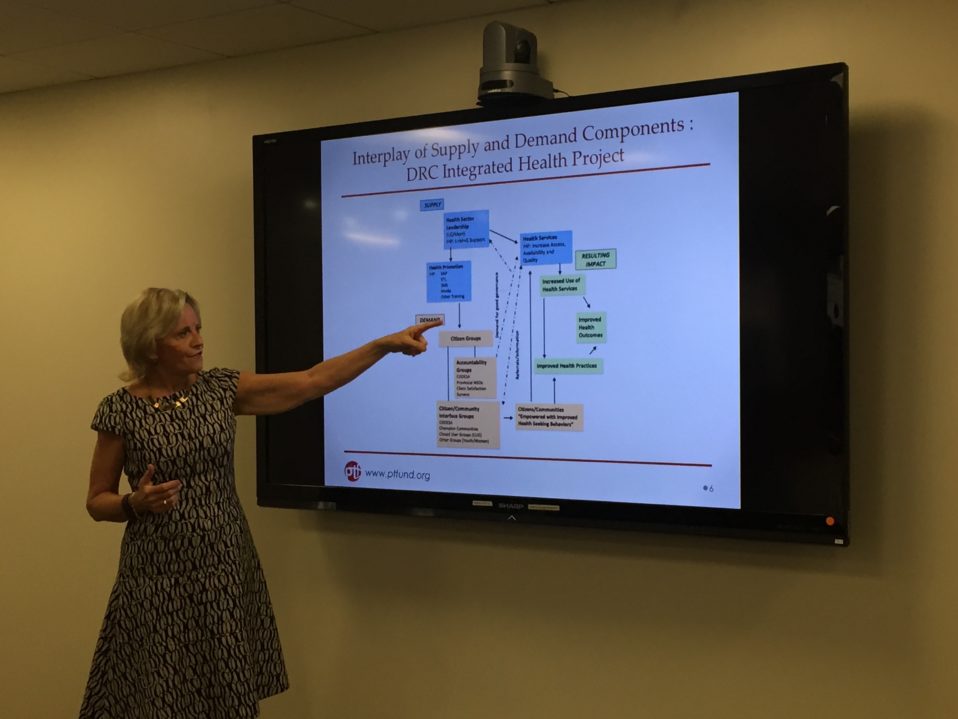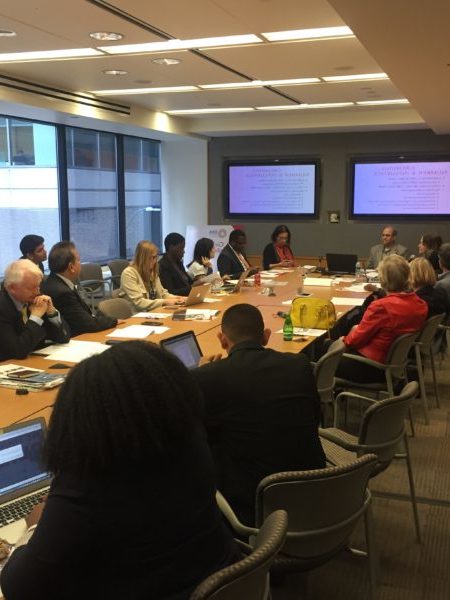As governments and the international aid community scramble to respond to the COVID-19 pandemic, direct citizen engagement in public health programs has already had a demonstrable positive impact on the success of these programs. While governments in both middle-income and low-income developing countries face the pandemic with support from international aid agencies, the large-scale, rapidly disbursing programs strain weak public delivery systems and provide massive opportunities for fraud and corruption.
“The Power of Citizen Engagement – A Unique PTF Perspective,” – Dan Ritchie
Strengthening Stakeholder Engagement and Improved Governance in the COVID 19 Response in Ghana
Beyond Advocacy: Maximizing social accountability initiatives and CSO engagement in the development operations funded by International Financial Institutions to accelerate SDG16 progress
PTF-Sponsored Session at the 2019 Asian Evaluation Week – Citizen and Civil Society Engagement for Development Effectiveness: State and Quality of Evaluation
Participants will discuss and learn about state and quality of evaluation approaches, findings and gaps in the emerging field of citizen and civil society engagement in enhancing development effectiveness in general and of public services in particular.
Citizen Action for Results, Transparency and Accountability (CARTA)
The Citizen Action for Results, Transparency and Accountability (CARTA) program was a unique monitoring model that aimed to provide donors and development agencies with more specific and real-time information on the impact of their projects. By building the capacity of local CSOs to conduct donor project monitoring, CARTA strengthened ownership of outcomes, reduced the propensity of corruption and increased overall citizen engagement.
Assisting International Financial Institutions (IFIs) in Civil Society Engagement
Civil Society Roles in Engaging Citizens for Better Results in the World Bank Funded Projects
On October 11, the Partnership for Transparency sponsored a panel on civil society roles in engaging citizens World Bank projects at the World Bank Civil Society Policy Forum. The event brought together speakers from the World Bank Citizen Engagement Secretariat, the World …
Citizen Engagement in Health Service Delivery: Exploring Approaches and Outcomes
The Partnership for Transparency Fund (PTF) hosted a seminar November 3, 2016 to explore the experience of citizen engagement in health service delivery. Representatives from USAID and the World Bank participated as discussants …
World Bank Civil Society Policy Forum – Civil Society and Development: Six Global Trends and Lessons from Nigeria
On October 7, 2016 the Partnership for Transparency Fund (PTF) co-sponsored a panel at the World Bank’s Civil Society Policy Forum entitled “Civil Society and Development: Six Global Trends and Lessons from Nigeria.” PTF, along with the Africa Middle East Progressive Initiative (AMEPI), presented PTF’s newly released report on Global Trends in Civil Society Engagement and what those trends mean for Nigerian CSOs …




